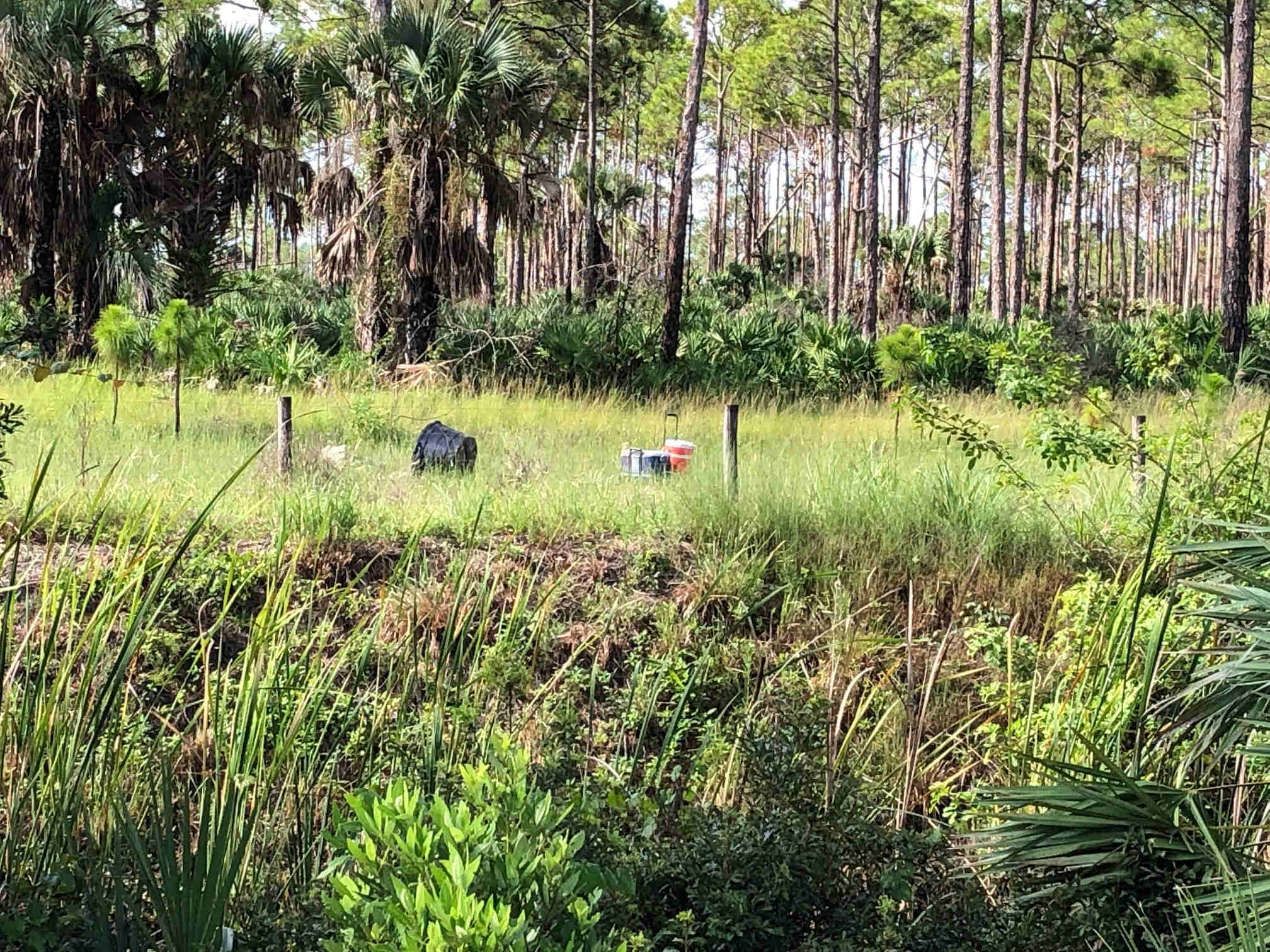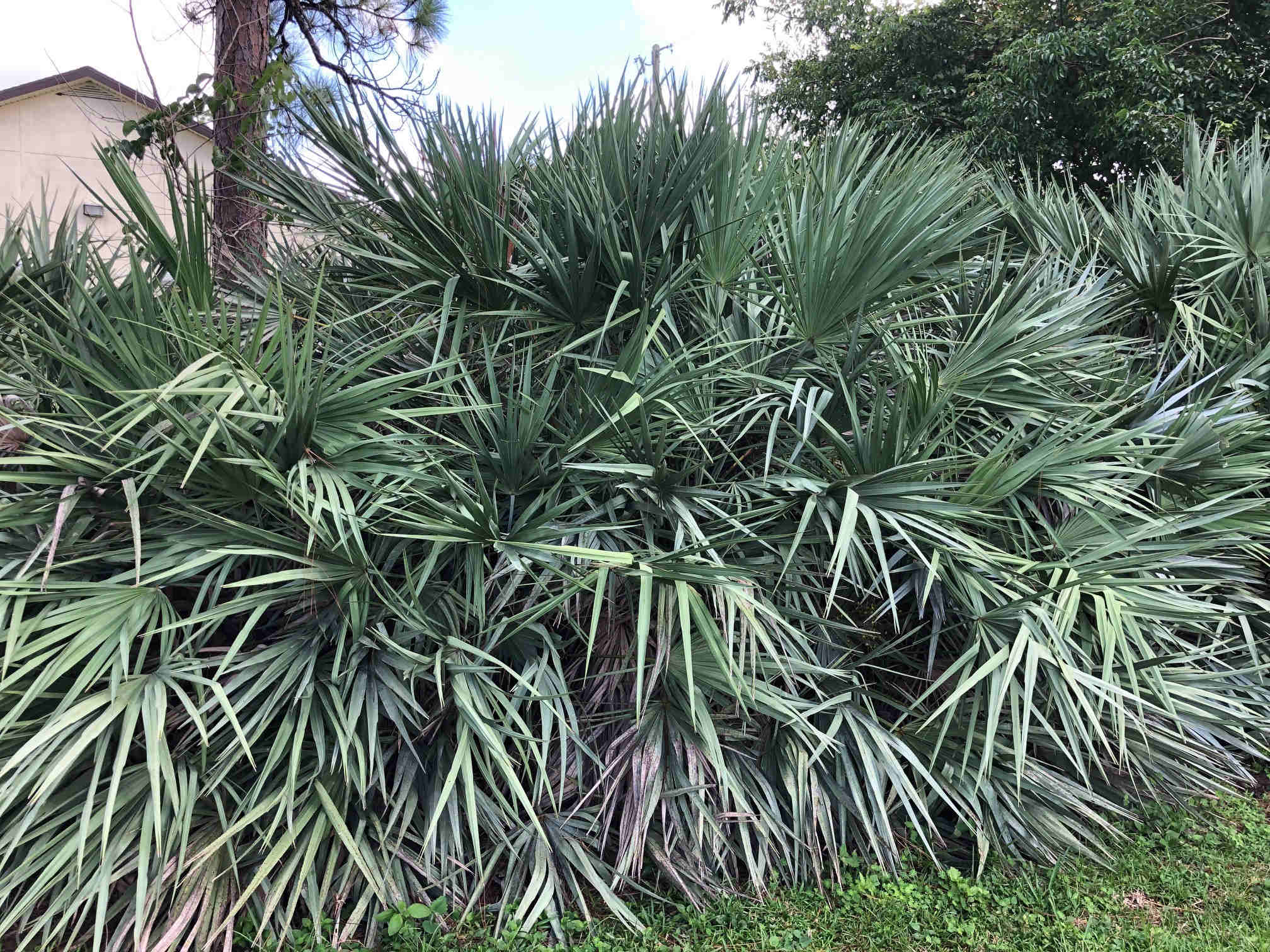As the UF/IFAS Natural Resources Extension Agent for St. Lucie County, I am often stomping through the county’s amazing abundance of nature preserves. I have demonstration sites for biological control of invasive plants and I also teach Florida Master Naturalists and others about the natural systems we have in the county. Usually my excursions end with amazing stories of the most beautiful butterflies, wildflowers and other natural wonders seen on these adventures. Unfortunately, sometimes I also come across suspected illegal activity. Saw palmetto poaching is one of these illegal activities.

I contacted the St. Lucie County’s Environmental Resources Department and asked for their viewpoint on saw palmetto berry poachers. They have a strict policy of not allowing harvesting of saw palmetto berries in county-owned preserves. It is recommended that 9-1-1 be contacted when suspected saw palmetto berry poachers are seen. Suspected poachers should not be confronted directly. Let law enforcement handle the situation. Other city and state land managers in St. Lucie County also have a similar policy.
So why is it such a big deal? Why would anyone want to poach saw palmetto berries anyway?

Saw palmetto (Serenoa repens) is described as a sturdy native tree in UF/EDIS literature (Gilman 2014). Its fruit is inconspicuous and not showy. According to UF literature, saw palmetto leaves and drupes provide cover and food for over 211 species of wildlife (Fast, Ferrell and Sellers 2012). Drupes can also be consumed by people, and they have been used for the treatment of 63 commonly occurring medical conditions. Unfortunately, when poachers illegally harvest saw palmetto berries from nature preserves, they deprive wildlife of their food source. They also remove the plant’s ability to sprout new saw palmettos from the fruit. To the people entrusted with management of our precious natural areas, its a pretty big deal.
The Florida Department of Agriculture and Consumer Services (FDACS) considers this issue severe enough that saw palmetto is now listed as a commercially exploited plant. This list is currently available on the Florida Administrative Code and Florida Administrative Register website. This listing resulted in new requirements for the harvesting of saw palmetto berries. These new requirements took effect July 17, 2018.
The FDACS website has information about saw palmetto exploitation. Their website also features a permit application request for harvesting endangered or commercially exploited plant(s) or plant part(s). Please note that permits will not be issued for saw palmetto berry harvesting in St. Lucie County’s nature preserves. Click this link to find more information about this permit application: Native Plant Harvesting Permit / Plant Industry Permits / Agriculture Industry / Home – Florida Department of Agriculture & Consumer Services (fdacs.gov)

Resources
Fast, B, Ferrell, J., and Sellers, B. (2012). Saw palmetto control: individual plant and broadcast application. [UF/EDIS] https://edis.ifas.ufl.edu/publication/AG351
FDACS Saw Palmetto Berry Harvesting [Retrieved online August 2, 2023] Native Plant Harvesting Permit / Plant Industry Permits / Agriculture Industry / Home – Florida Department of Agriculture & Consumer Services (fdacs.gov)
Gilman, E. (2014). Serenoa repens Saw Palmetto [UF/EDIS doc currently offline] https://edis.ifas.ufl.edu/publication/fp547
UF/IFAS Extension programs are open to all persons without regard to race, color, sex, age, disability, religion, or national origin.
The mission of the University of Florida Institute of Food and Agricultural Sciences (UF/IFAS) is to develop knowledge relevant to agricultural, human and natural resources and to make that knowledge available to sustain and enhance the quality of human life. With offices in each of Florida’s 67 counties, UF/IFAS Extension works to bring science-based solutions to the state’s agricultural and natural resources industries, and all Florida residents.
SolutionsForYourLife.com | @UF_IFAS An Equal Opportunity Institution
Source: UF/IFAS Pest Alert
Note: All images and contents are the property of UF/IFAS.



